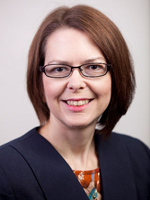
Candy Gunther-Brown, Ph.D., is Professor of Religious Studies at Indiana University. She received her B.A. (1992; summa cum laude), M.A. (1995), and Ph.D. (2000) degrees from Harvard University. Dr. Brown is the author of The Healing Gods: Complementary and Alternative Medicine in Christian America (Oxford University Press, 2013); Testing Prayer: Science and Healing (Harvard University Press, 2012), Global Pentecostal and Charismatic Healing, as editor (Oxford University Press, 2011), and The Word in the World: Evangelical Writing, Publishing, and Reading in America, 1789-1880 (University of North Carolina Press, 2004).
Some of the questions Dr. Brown asks are: Can science prove the
healing power of prayer? Why is complementary and alternative medicine supposed to work? Is religion good (or bad) for your health? How do we understand miracles and demons in a scientific age?
With these inquiries in mind, she teaches university courses and gives numerous community lectures and media interviews on the subjects of Prayer, Science, and Healing; Complementary and Alternative Medicine; Religion, Illness, and Healthcare Management; and Exorcism. Dr. Brown studies the health effects of prayer, religious belief, and complementary and alternative medicine, and has conducted extensive empirical research in the United States, Canada, Brazil, and Mozambique. She grew up in the agriculturally fertile Central Valley of California and enjoys tasty, plant-based whole foods and outdoor activities, such as rollerblading, cycling, running, hiking, and backcountry camping.
In this interview, we discuss yoga as a new American phenomenon and the way that some evangelical Christians practice it. Brown provides a historic overview of bodily–religious practices in America, starting with mesmerism, occultism, osteopathy, and chiropractic in the nineteenth century.
This work is licensed under a Creative Commons Attribution- NonCommercial- NoDerivs 3.0 Unported License.
The views expressed in podcasts, features and responses are the views of the individual contributors, and do not necessarily reflect the views of The Religious Studies Project or our sponsors. The Religious Studies Project is produced by the Religious Studies Project Association (SCIO), a Scottish Charitable Incorporated Organisation (charity number SC047750).